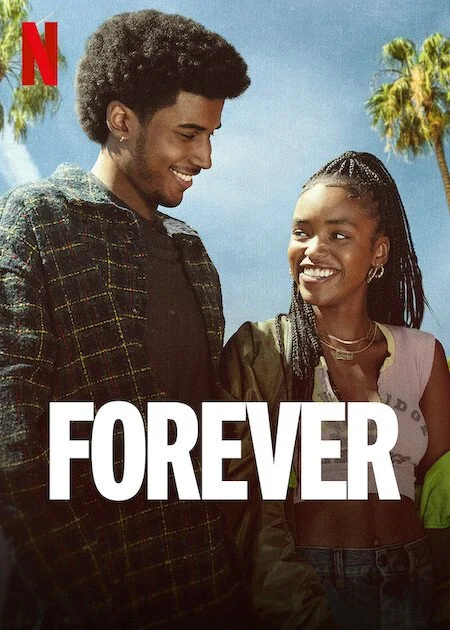Netflix's Forever: A Milestone for Young Black Love Stories
I want to share my thoughts on the Netflix show Forever.
I really liked it, and honestly, I’m still trying to wrap my head around why some people didn’t. Maybe I’m exaggerating, but it genuinely feels like for the first time in a long time we’re seeing a (young) Black love story in mainstream media that isn’t built around violence, crime, cheating, or abuse.
Yes, I know we’ve had beautiful films like The Photograph, Really Love, Love & Basketball, and Love Jones but this felt different. It’s been a while since we’ve seen something like this, especially targeted at a younger audience and given a spotlight on a major platform like Netflix.
Forever, created by Mara Brock Akil and adapted from Judy Blume’s book, is a teen drama set in 2018 Los Angeles. It follows two young Black athletes who fall in love for the first time while navigating pressure from their families to land college athletic scholarships. The show also deals with real issues like revenge porn but it does so in a way that reflects what many young people are facing today. It has its share of drama, yes, but not the kind that defines Black love through suffering.
What really stood out to me and what we rarely see on screen is that both main characters come from intact, loving families.
No “absent Black father” narrative here.
Both kids have supportive, present, successful parents. That’s important. And while I’m not the type to chase "representation" as the solution to everything we all know representation alone won’t save us I still appreciated seeing this family dynamic. The whole “fatherless” stereotype is just that: a stereotype. Yes, it exists in some lives but it’s constantly and unfairly projected onto Black people more than anyone else. So seeing families like this on screen, I loved it.
I also appreciated how open and communicative the parents were with their kids. They had honest, healthy conversations. That felt real and refreshing. Now, I’ll be honest Justin’s mom, Dawn, got on my nerves at times. But I’m not a mother, let alone a mother of a Black son growing up in a world shaped by stories like Trayvon Martin’s. I get her strictness. I get her fear. It’s not control it was protection. And that nuance made her character even more powerful to me.
So no, Forever might not be perfect. But I want to focus on what it did right. I love that this story exists. I love that it’s on Netflix. And I love that it shows us young Black love can be sweet, messy, vulnerable, and beautiful without always being defined by trauma.

